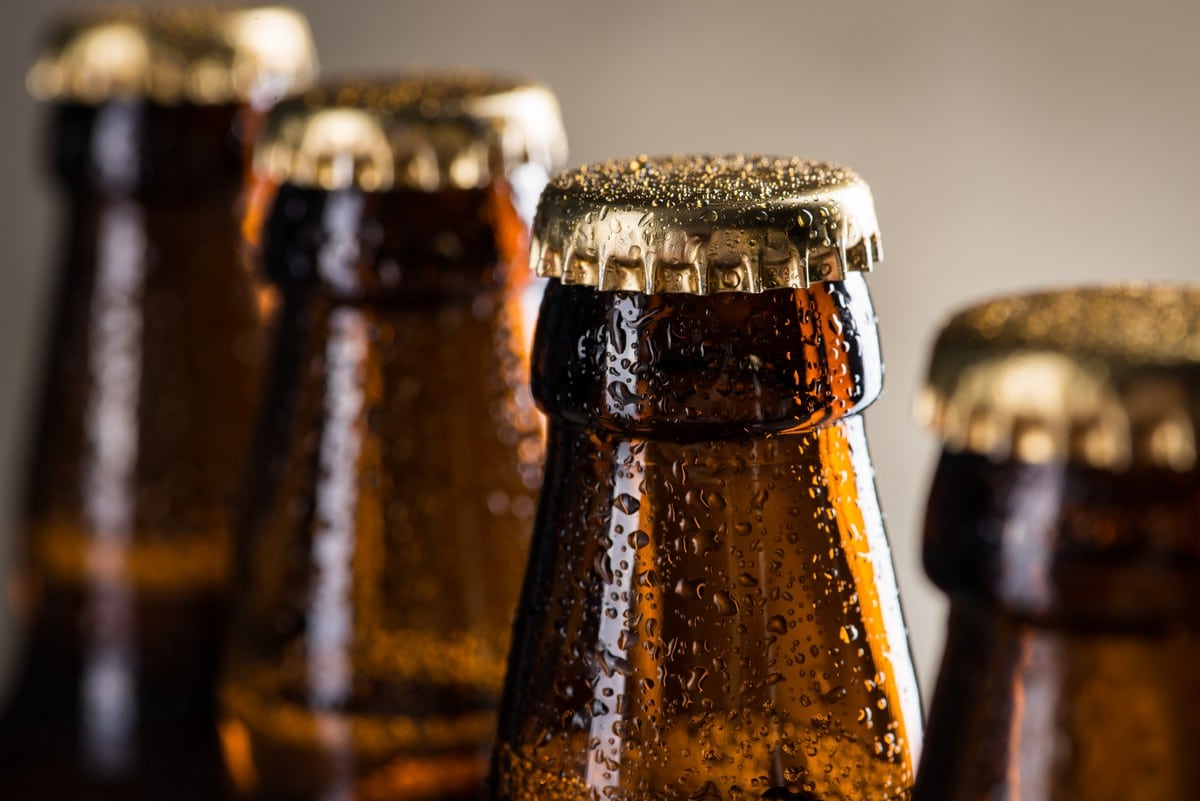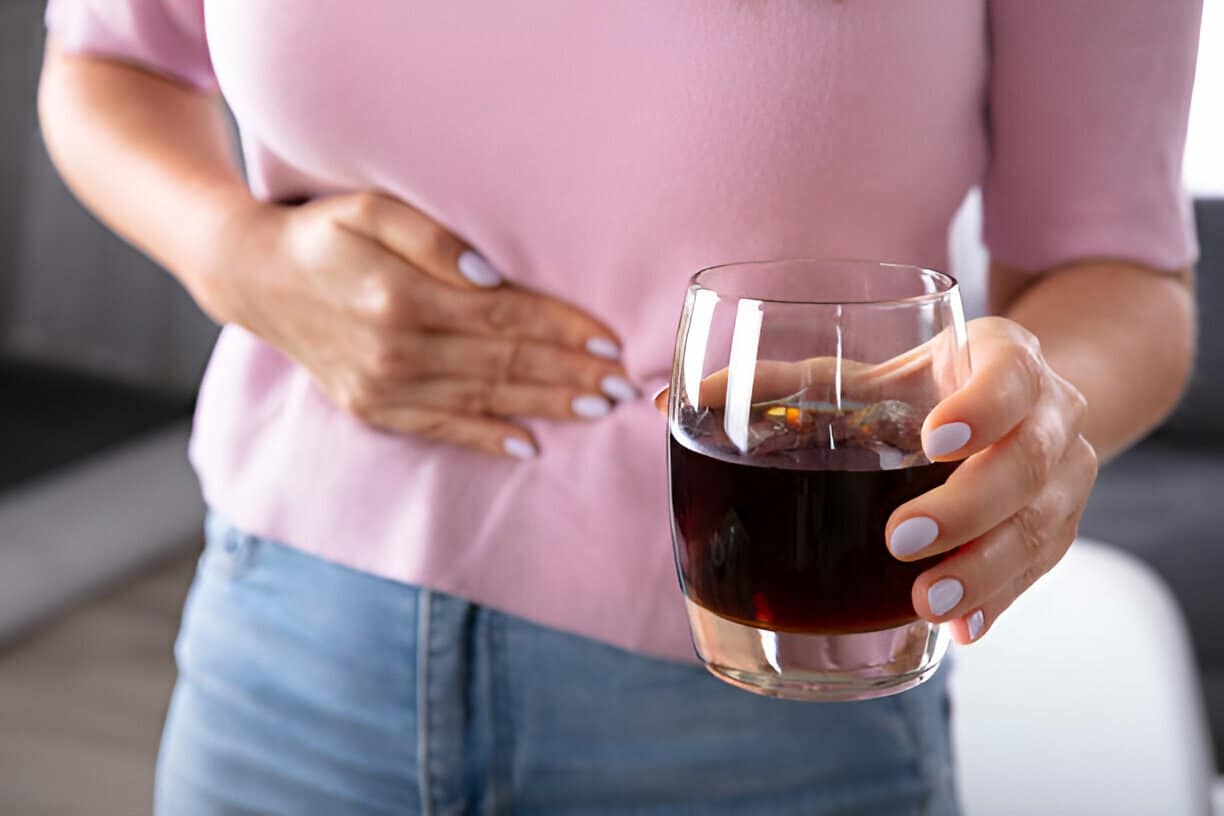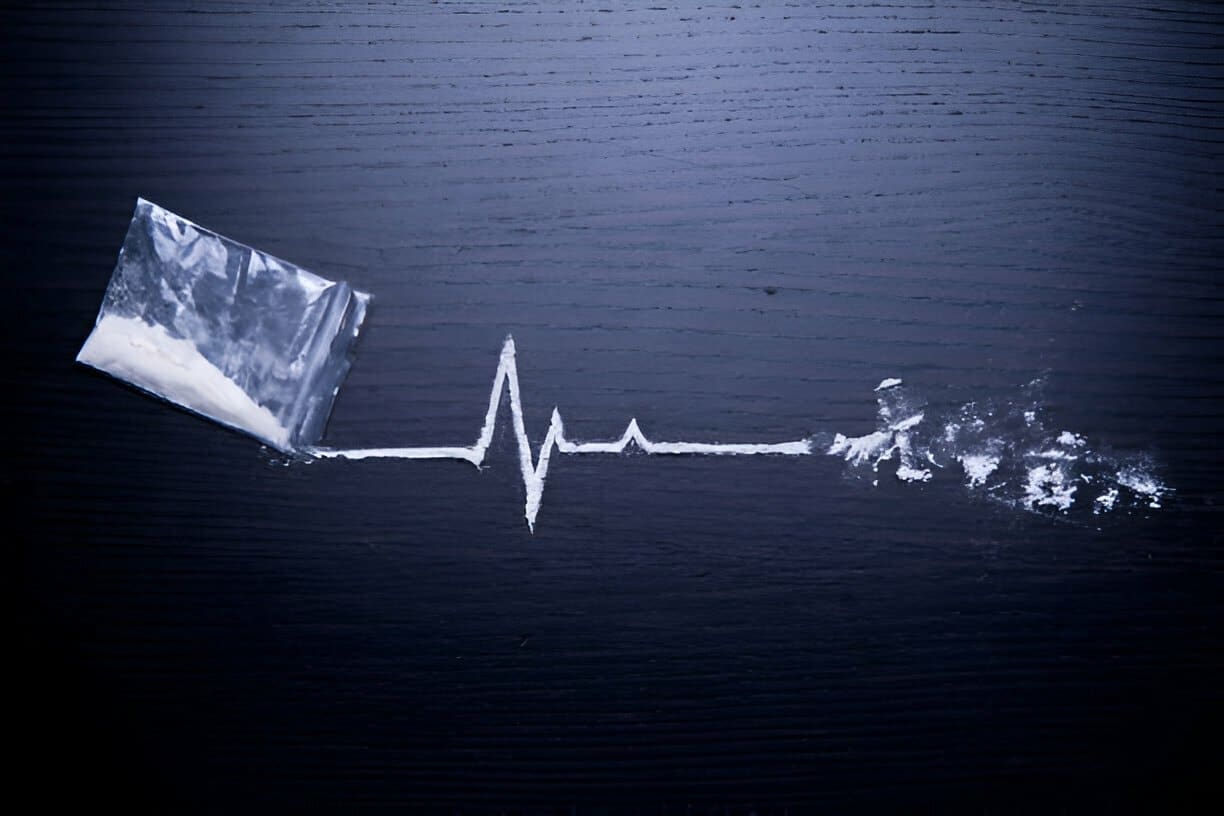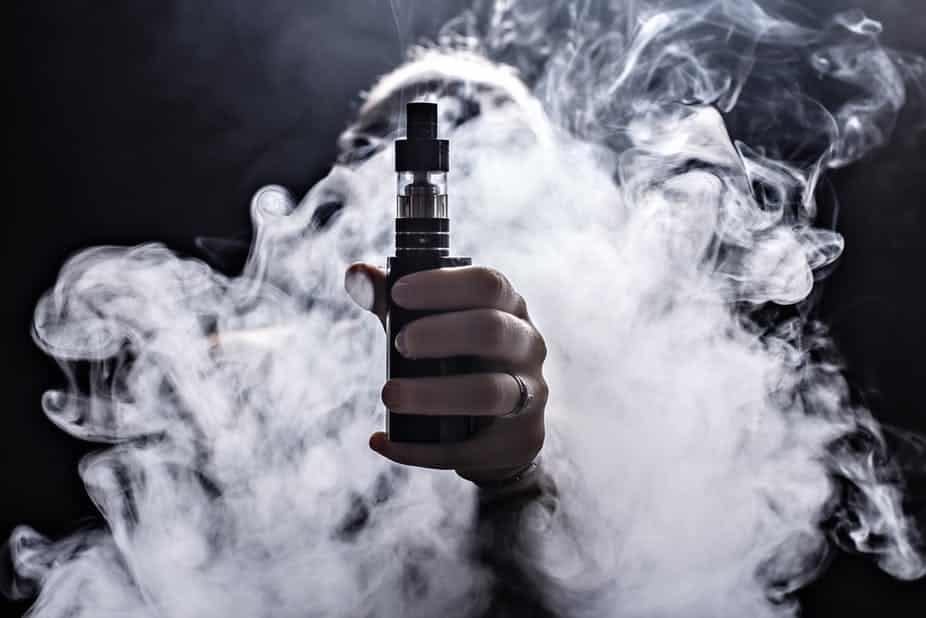Start exploring drug and alcohol rehabs today. Treatment providers are available to answer your questions.
A loss of control over drinking indicates an alcohol use disorder. There are three types of alcohol consumption disorders: mild, moderate, and severe.
Alcoholism is defined by a strong, often overwhelming urge for alcohol, which begins with alcohol abuse. Naturally, the more a person drinks, the more accustomed their body becomes to the effects of alcohol, requiring them to consume more to achieve the same ‘high’. Tolerance results from this process and frequently leads to physical dependency on the substance, leading to addiction.
Those suffering from alcoholism may be unable to operate normally if they do not have alcohol in their system. This alone has several harmful consequences.
Those struggling with alcoholism frequently try to quit or cut down their drinking on their own, despite being unadvisable. In the absence of medical supervision, abruptly ceasing to drink alcohol is not recommended.

Alcoholism is a disease that affects millions of people every year. People affected by alcoholism suffer from various physical and psychological ailments, including depression, anxiety, memory impairment, sleep disorders, poor concentration, and impaired judgment. In some cases, people suffering from alcoholism become violent or suicidal.
Denial is a prevalent sign among people suffering from addiction due to the nature of the disease. However, some hints and indicators reveal a problem with alcohol.
Here are some of the most prevalent signs and symptoms of alcoholism that you should be aware of:
Excessive use of alcohol might also lead to financial difficulties. Normal lifestyle routines and behaviours are disrupted, and the person begins to ‘fall behind in school or at work responsibilities.
While there are no hard and fast rules regarding when to seek help for alcohol addiction, it’s generally recommended that you start seeking treatment as soon as possible. It may be time to seek treatment if your social and professional position has worsened due to your drinking habit.
Here are some reasons why this is true:
1. Your life could be in danger.
2. You could lose control over your drinking.
3. You could end up harming yourself or others.
4. Your health could suffer.
5. Your relationships could deteriorate.
6. Your school/job performance could suffer.
7. You could lose custody of your children.
8. You could lose your license.
9. You could face legal problems.
10. You could lose your insurance coverage.
11. You could lose friends and family.
The first step in overcoming alcoholism is recognising that it exists. The second step is understanding how it affects your life. If you have a drinking problem, then you need to understand what causes it. You also need to know about the effects of alcohol on your body and brain. Finally, you must learn how to cope with these problems.
A good place to start is by talking to someone who has been there before. A friend or family member may be able to tell you about their experiences with alcoholism, while they will probably offer some helpful advice as well.
If you don’t have anyone to talk to, you can find more information online. There are many websites devoted to helping people recover from alcoholism. These sites contain articles, forums, chat rooms, and other resources. Some of them are free, while others require a fee.
You should take advantage of all the resources available to you. This way, you’ll make sure you get the best chance possible for recovery.
The term “alcohol rehab” refers to a specialised rehabilitation clinic for alcohol addiction treatment. A person suffering from an alcohol use disorder may seek treatment at a residential alcohol rehab centre.
A medicated detox is frequently required, depending on the severity of the condition. However, the rehab centre will include this detox if physical dependence is present.
After this detox, psychological therapy will be used to address the behavioural components of addiction. In contrast, the mental aspects of addiction will be handled through group therapy, one-on-one counselling, and anxiety and anger management training.
Anyone who is serious about quitting drinking can benefit from alcohol treatment. The main reason for this is that numerous treatment options are available, all of which are overseen by experienced addiction counsellors. Different treatment centres will provide various types of therapy, just like drug addiction treatment. Hence, it’s crucial to consider your alternatives and decide which will work best for you and those around you.

Don’t go through the process of recovery alone. Treatment providers can answer your questions. Get in touch with one today.
Call 0800 999 1083 today!
The boundary between social drinking and alcoholism can be unclear. Knowing when to seek help can make a huge difference in your and your family’s lives.
Here’s a list of questions to assist you in deciding whether or not treatment is necessary:
If you responded yes to the majority of these questions, you might want to consider going to rehab. It is at least prudent to get the advice of your local GP on this subject.
According to the Substance Abuse and Mental Health Services Administration, excessive alcohol consumption can increase a person’s risk of stroke, liver cirrhosis, alcoholic hepatitis, cancer, and other major health problems.
Treating alcohol addiction isn’t just about helping you stop using alcohol. It’s also about helping you deal with your underlying issues. For example, if you’ve been diagnosed with depression, you will need to work on treating that before successfully addressing your alcohol addiction.
It’s vital that you choose a qualified treatment provider. Look for someone who has experience dealing with similar situations in the past. Ask them how long they’ve worked with patients who have struggled with alcohol addiction.
Speak to us on 0800 999 1083 to discuss treatment options and to find the best alcohol rehab centre.
While there is no single pathway to recovery, the following stages typically occur during the recovery journey.
When you arrive at the treatment facility, you’ll be assessed by medical professionals who will examine your physical and mental health. They will then define the route of your rehabilitation, which is unique to each individual and adapted to each circumstance.
Before starting any form of treatment or therapy, it’s essential to complete a full assessment of your situation. This way, and with the help of a GP or addiction professional, you’ll be able to identify precisely why you feel the way you do and find out what type of treatment would work best for you. It’s always advisable to share your concerns with a professional for guidance.
If you’re struggling with alcohol addiction, it’s likely that you already know something isn’t right. Your body might not show any outward signs of being addicted, but you’re probably experiencing negative emotions and behaviours inside. For example, you may be feeling depressed, anxious, angry, guilty, ashamed, lonely, stressed, frustrated, hopeless, or helpless. You may think you’re fine, but this doesn’t mean anything.
It’s important to remember that you deserve to live a happy life no matter what you’re going through. There are plenty of ways to achieve this, including seeking professional help for the process.
Finally, you’ll want to prepare yourself emotionally. This means reflecting on your past behaviour and thinking about how you can change your future.
Undoubtedly, dealing with alcohol addiction requires a lot of effort from both you and your loved ones. However, it’s never too late to turn things around. By choosing to seek help, you can begin to heal and move forward towards a happier, healthier life.
Detoxification refers to the removal of toxins from your body, and it’s usually the first stage of treatment. During this stage, you will likely experience some withdrawal symptoms. The first step in recovery is to remove yourself from any substances that could harm your body, often requiring medical supervision. Your doctor will monitor your progress and ensure that your body functions properly.

Alcohol withdrawal syndrome (AWS) occurs while detoxification, when someone stops using alcohol, especially if it’s stopped abruptly. Symptoms include anxiety, agitation, confusion, hallucinations, insomnia, muscle pain, seizures, tremors, vomiting and weight loss. These symptoms typically start between 12 and 48 hours after stopping alcohol use and last anywhere from three to seven days.
Treatment for AWS includes medications such as benzodiazepines (Valium®), antidepressants (Zoloft®, Paxil®) and antipsychotics (Risperdal®). These alcohol treatment medications may reduce the severity of symptoms but don’t eliminate them entirely.
Some people find that acupuncture helps alleviate the symptoms of AWS. Acupuncture works by stimulating certain points on the body. This enables the release of endorphins, which reduces anxiety and other unpleasant symptoms.
Medical detoxification is another option for detox. It involves the removal of toxic chemicals from the body through medical intervention. This process is usually done in a hospital setting. Medical detoxification is generally safe and effective for people who have been diagnosed with alcohol dependency. This procedure aims to reduce the risk of complications during and after withdrawal.
The first step in medically assisted alcohol detoxification is determining whether the patient has a history of alcohol dependence. If the patient does not meet the criteria for alcohol dependence, the doctor will discuss other options for treatment.
Suppose the patient meets the criteria for alcohol dependence and is willing to participate in the program. In that case, they will undergo a series of tests to ensure that the patient is physically healthy enough to undergo the procedure.
The doctor will ask about the patient’s past medical history during the initial assessment, including previous surgeries, current medications, and allergies. They will also conduct a physical examination.
Once the patient’s health status is determined to be acceptable, the doctor will begin the process of medically assisted alcohol detoxification.
After determining that the patient is physically fit for the procedure, the doctor will insert an intravenous catheter into a vein on the patient’s arm. This catheter allows fluids and medicines to enter the bloodstream without causing pain.
Next, the doctor will administer medication to suppress the patient’s natural response to withdraw from alcohol. This is called pharmacological sedation. Medications commonly used to induce sedation include propofol (Diprivan) and midazolam (Versed).
The doctor will monitor the patient throughout the procedure to make sure that they remain calm and comfortable. After the patient has reached a state of deep unconsciousness, the doctor will remove the IV line and attach it to a saline drip bag. Saline drips continuously into the bloodstream to replace fluid lost by the patient.
Next, the doctor will place a nasogastric tube down the patient’s nose and into their stomach, providing access to the stomach contents. The doctor will flush out the stomach with large quantities of water, helping to prevent vomiting while the patient is under anaesthesia.
The doctor will continue to infuse liquids through the IV line to keep the patient hydrated. Once the patient is awake again, the doctor will remove both tubes.
After the patient recovers from the procedure, the doctor may prescribe additional medications to treat any side effects such as nausea.

Self-administered alcohol detox programs are often dangerous because patients do not receive adequate supervision. They also pose a high risk of relapse due to their lack of structure and guidance. With medically assisted alcohol detoxification, the patient receives professional care 24 hours a day. Staff members work closely with the patient during each step of the procedure.
When the patient begins to feel better, they can move to a private room where they can rest comfortably. In this setting, the patient can enjoy some much-needed downtime before beginning the next phase of treatment.
In addition, the staff will provide counselling sessions to help the patient cope with withdrawal symptoms and develop new ways to deal with stress.
Medically assisted alcohol detox takes approximately four days to complete. However, patients usually stay longer than this because they need extra time to recover fully.
The patient will likely experience mild discomfort and fatigue. However, these symptoms should subside within several weeks. If the patient experiences any problems, they should contact a medical provider immediately. It is safe to go home after completing medically assisted alcohol detox.
Alcohol rehabilitation is a process designed to treat the underlying causes of alcoholism. It involves a combination of therapies, counselling and medication. Some of the therapies used during alcohol rehab include cognitive behavioural therapy, group therapy, meditation, art therapy, music therapy, yoga, exercise and nutrition counselling.
The goal of alcohol rehab is to help the person develop healthy ways to cope with life’s challenges. During alcohol rehab, the patient will learn how to deal with stressful situations without turning to alcohol, while they also learn strategies to avoid relapse.
Alcohol rehab programs vary greatly. Many centres provide individualised care while others focus more on group work. Some facilities have separate rooms for men and women while others do not.
Many alcohol rehab centres require patients to undergo a period of abstinence before they begin treatment. Patients who complete this step usually feel better about their chances of success.
In addition to professional guidance, many alcohol rehab centres offer social activities to keep patients engaged. Some facilities allow patients to continue working while they are undergoing treatment. Others provide recreational activities such as hiking, fishing, golfing, swimming and arts and crafts.
Many people believe that alcohol rehab is only necessary if a person has been diagnosed with an alcohol-related disorder. However, research shows that alcohol rehab can benefit anyone who struggles with substance abuse.
An inpatient program provides 24-hour supervision and care during the recovery process. The patient receives counselling and therapy while living in a facility where they have access to food, shelter, and other necessities. This allows patients to focus on healing without distractions, usually staying in these facilities for several weeks or months.
This type of rehab option is proven to be the most effective treatment option.
Inpatient programs offer comprehensive care and intensive therapeutic services with continuous monitoring and supervision. They also give patients access to medical staff who specialise in treating alcohol abuse disorders. Patients usually stay in these facilities for several weeks or months as they work toward recovery.
There are many benefits to choosing an inpatient program. For example, it provides the opportunity to receive individualised treatment from highly trained professionals. It also gives patients the chance to participate in regular group sessions and other educational opportunities. Finally, it allows patients to live under close supervision and complete all required tasks.
Inpatient programs are ideal for individuals who suffer from severe withdrawal symptoms. In addition, some people find that living in a controlled environment is easier than managing their daily lives outside of a facility. Many outpatient clinics do not offer this level of care.
Inpatient treatment programs are also great options for people who struggle with co-occurring mental health conditions. Studies show that people who experience both substance use and mental health issues tend to fare better when treated together. Therefore, if you are struggling with anxiety or depression, an inpatient facility will allow you to get professional help for your mental health condition while receiving the necessary counselling to address your drug addiction.
Inpatient centres often offer specialised programs for teenagers and young adults. These programs include age-specific activities such as sports leagues, arts and crafts, and recreational activities. This helps teens develop healthy habits and build strong relationships with peers.
Inpatient programs also offer more privacy than outpatient settings. You won’t have to worry about running into friends or family members in public places. Instead, you’ll spend your time getting treatment and enjoying the comforts of living in.
If you’re looking for a safe place to recover from alcoholism, consider finding an inpatient centre near you. However, remember that there is no guarantee that any particular centre will be able to meet your unique needs.

An outpatient program offers similar services to those found in an inpatient setting. However, instead of staying overnight, participants attend weekly or biweekly meetings to discuss their progress and learn new skills. Outpatient programs typically last between six and 12 weeks.
Outpatient treatment may be less expensive than an inpatient program. However, it does not always produce the same results. While inpatients receive extensive therapy, outpatients are expected to manage their recovery more independently. As a result, they must put in extra effort to achieve long term sobriety.
Outpatient programs are best suited for people who cannot commit to an entire course of treatment for various reasons, including work or school commitments. People who cannot remain sober during the day may also benefit from attending these programs because they provide structure and supervision throughout the day, which allows patients to focus on their recovery efforts.
There are many different types of outpatient programs available. Here are just some examples:
These programs allow patients to continue living at home while receiving treatment. The length of these programs varies depending on the severity of the patient’s condition. In general, partial hospitalisation lasts anywhere from three to nine months.
Day treatment programs offer intensive therapy sessions five days per week, where patients usually return home each evening. Day treatment programs are generally considered the least effective form of treatment. However, they are still helpful for people who need short term assistance.
Intensive outpatient programs (IOP) are designed to address the root causes of substance abuse. IOPs are highly structured and offer extensive counselling and group therapy. Participants attend daily sessions but go home every night.
Aftercare programs follow up with former patients after they leave the program. They work to ensure that patients maintain their sobriety once they return home.
Don’t go through the process of recovery alone. Treatment providers can answer your questions. Get in touch with one today.
Call 0800 999 1083 today!
Psychotherapy – Psychotherapy is a form of talk therapy that focuses on helping people understand their thoughts and feelings.
Cognitive-behavioural therapy (CBT) – CBT is a specific type of psychotherapy that teaches people how to identify unhelpful thought patterns and replace them with healthier ones. CBT also teaches people how to manage emotions and behaviours.
Dialectical Behavior Therapy (DBT) – DBT is a type of cognitive behaviour therapy developed specifically to treat borderline personality disorder. It uses mindfulness techniques and acceptance strategies to help individuals learn to recognise and respond to emotional dysregulation. However, it helps with alcohol treatment too.
Interpersonal Psychotherapy (IPT) – IPT is a brief version of psychodynamic therapy that focuses on interpersonal problems and conflicts. It combines psychoanalysis and group work to help patients explore past experiences and gain insight into current situations.
Mindfulness-Based Cognitive Therapy – Mindfulness-based cognitive therapy combines mindfulness practices and cognitive behaviour therapy. It focuses on changing maladaptive thought patterns and replacing them with healthier alternatives.
Family Systems Theory – Family systems theory is based on the idea that family members influence each other’s behaviour. It suggests that specific family dynamics may contribute to alcohol abuse.
Group Counseling – Group counselling involves small groups of people who meet regularly to discuss topics such as personal growth, communication skills, stress management, and relapse prevention.
Individual Counseling – Individual counselling is similar to individual psychotherapy but often takes place over longer periods of time. It is used when working with adolescents and adults.
Medication Management – Medications play an important role in the treatment of alcoholism. They can reduce cravings for alcohol and make it easier to abstain. They may also prevent relapses by reducing withdrawal symptoms.
Meditation – Meditation is a practice that involves focusing attention on something positive and calming. It is commonly practised to deal with anxiety and depression.
Relapse Prevention – Relapse prevention is a method that encourages people to avoid triggers and use coping skills to prepare for future stressful events. It is beneficial for recovering addicts because it helps them build self-efficacy and maintain abstinence.
Self-Esteem Enhancement – Self-esteem enhancement is a way of boosting self-confidence. It involves identifying areas of weakness and developing new ways of thinking and behaving.
Motivational Interviewing – Motivational interviewing is a technique that encourages patients to take responsibility for their own decisions. It is particularly effective for dealing with resistance to change.
Motivation Enhancement – Motivation enhancement is a process where therapists encourage clients to set goals and develop plans to achieve those goals. This approach helps overcome procrastination and increases motivation.
Behavioural Activation – Behavioural activation is a strategy that helps people become more active and engaged in life. It involves teaching people to focus on activities they enjoy rather than avoiding or engaging in harmful behaviours.
Social Skills Training – Social skills training is designed to improve social interactions and problem-solving skills. It is typically taught in small groups and includes exercises that help participants learn to interact appropriately with others.
Problem Solving – Problem-solving is a skill that teaches people how to identify and solve problems. It can be done individually or in a group setting.
Mindfulness-Based Stress Reduction – Mindfulness-based stress reduction is a type of meditation that teaches people to observe their thoughts and feelings without judgment. It has been shown to have beneficial effects on overall well being.
During this final stage, you will work toward living a sober life. You will learn new skills and become more independent, while you will also continue receiving counselling to address any lingering issues.

Staying clean for a long time is challenging, but it is crucial to living a good life. You’ll have to deal with the realities of life and the obstacles that come with it. If you need it, some facilities provide continuous therapy alternatives and assistance. Joining other support organisations, such as Alcoholics Anonymous, might be beneficial at the same time.
Once you complete your alcohol rehab program, it is essential that you maintain a healthy lifestyle. To do this, you need to follow a strict set of rules once you leave the rehab facility. Your doctor will give you specific instructions on how to stay clean. They will also recommend that you attend regular checkups and appointments. These are essential for monitoring your progress and ensuring that you remain abstinent.
In addition to following the rules prescribed by the professionals, you will also need to take steps to avoid falling into old patterns. One way to do this is to develop a plan for dealing with stressful situations. When faced with a situation that causes you to feel stressed, ask yourself whether you would typically reach for alcohol. If you answer yes, then try to think of another solution.
Another way to avoid relapsing is to practice mindfulness. Mindfulness involves being aware of your thoughts and actions while they are happening. By doing this, you can control your impulses and make better choices.
Set realistic goals for yourself. To keep yourself motivated, you need to establish goals. Make sure that your goals are attainable, write them down and post them somewhere visible. Keep track of your progress by using a journal or calendar.
Relapses happen because people fall off their path of recovery. They slip up and return to old behaviours. To avoid slipping, you need to continue practising self-control and taking positive action.
Don’t go through the process of recovery alone. Treatment providers can answer your questions. Get in touch with one today.
Call 0800 999 1083 today!
Before you choose a treatment centre, ask yourself some questions. You should consider the following factors before deciding where to get help:
Ask the person who recommended the facility if they know anything about their success rate if the centre was recommended.
If possible, visit the facility and see what it looks like. Make sure it is clean and comfortable.
Try to meet with staff members and ask them about their experience working with alcohol addicts. They will be able to tell you more about the program and the facility.
Get references from former clients. Talk to them about their experiences with the treatment centre. Ask them about their progress and whether they would recommend the facility.
Find out if the treatment centre accepts referrals from local hospitals and doctors.
Alcohol Addiction is a serious problem that needs immediate attention. Call us on 0800 999 1083 to discuss treatment options.

Recovery takes different lengths of time depending on the person and the treatment option chosen. Some people can recover within weeks, while others take years. It’s impossible to say precisely how long it will take to recover fully. However, if you follow all the advice and procedures, you should be able to reach full recovery in just a few months.
It’s important to note that the costs associated with alcohol rehab vary widely depending on where you live. For example, if you live in London, you could pay anywhere between £2,000 and £8,000 per month. In contrast, residents of rural areas might find themselves spending less than £1,000 per month.
Here are some examples of average treatment costs:
If you are struggling financially, you should consider applying for financial aid. Some insurance companies and government agencies offer grants and loans to cover the cost of alcohol rehab, or you may want to consider looking at other sources of finance such as bank loans and credit cards.
Unfortunately, there are no guarantees when it comes to paying privately for rehab. However, if you can afford to pay privately, then it could save money over time.
Yes, several organisations offer free rehabilitation programmes. For example, the Salvation Army offers a range of alcohol and drug addiction treatment options, and you can apply online for help and counselling. Other charities include DrugScope, Addaction and Drinkaware.
Once you’ve decided that you want to stop drinking, you need to do something about it. This means getting professional help. Your doctor or therapist can provide you with referrals to local treatment centres.

These centres specialise in treating people suffering from alcohol abuse. They offer both short-term and long-term programs. Short-term programs usually last between 30 days and six months. Long-term programs typically last between three and five years. Long-term programs are generally considered to be the most effective. However, many people can successfully quit drinking without going into a formal program.
It’s important to remember that you still need to follow the rules your doctor or counsellor set forth, no matter which option you choose. This includes abstaining from alcohol during the entire course of treatment.
It’s also important to keep in mind that you won’t be cured overnight if you’re addicted to alcohol. Even after completing a long-term program, you may still experience cravings for alcohol. This is why it’s vital to work toward abstinence continuously. To stay sober, you need to avoid situations where you might encounter temptation. This means avoiding places where you used to drink, and certain people that you know will make you feel like drinking.
If you live alone, you may want to consider moving away from home. Living in close proximity to bars and restaurants could tempt you back to drinking.
In England, in 2019/20:

BACP accredited psychotherapist with 16 years experience working in mental health specialising in psychodynamic person-centred therapies treating those with a range of mental health disorders including anxiety, depression, OCD and Addiction.

Fill in your details and we’ll send you a message via SMS.

Many of your behaviours, including drinking, are impacted by your culture, religion, family, and workplace.
Family is the most crucial element in determining whether or not a person would develop alcoholism. Young children who are exposed to alcohol abuse are more prone to develop problematic drinking patterns.

No matter where you live, there are drug and alcohol rehab options for you to discover. Treatment providers are waiting to answer your questions. Get started today.

Ever felt that gnawing ache or burning sensation in your gut after a night of drinks? You’re not alone. Stomach pain after drinking is a common complaint, and there are a few reasons why it might happen. Let’s delve into the science behind the discomfort and explore ways to soothe your stomach. The Irritating Truth: … Continued

Cocaine, a stimulant known for its short-lived burst of energy and euphoria, hides a dark side. Behind the initial high lies a dangerous potential for overdose, with severe health consequences and even death. This article delves into the world of cocaine overdose, equipping you with the knowledge to recognize the signs, understand the dangers, and … Continued

Adult smoking habits in the UK refer to how often and in what ways people aged 18 and above use tobacco. This includes everything from smoking cigarettes every day to occasionally lighting up, as well as using other tobacco products. Understanding these habits is important for several reasons: Public Health: Smoking causes many diseases that … Continued

Addiction in the UK is a complex issue that is connected to various aspects of society such as healthcare and law enforcement. It affects people from all backgrounds and has negative impacts on families, communities, and the entire nation. Understanding addiction involves not only looking at the uncontrollable use of substances and repetitive behaviors but … Continued

Don’t go through the process of recovery alone. Treatment providers can answer your questions. Get in touch with one today.
Call 0800 999 1083 today!








